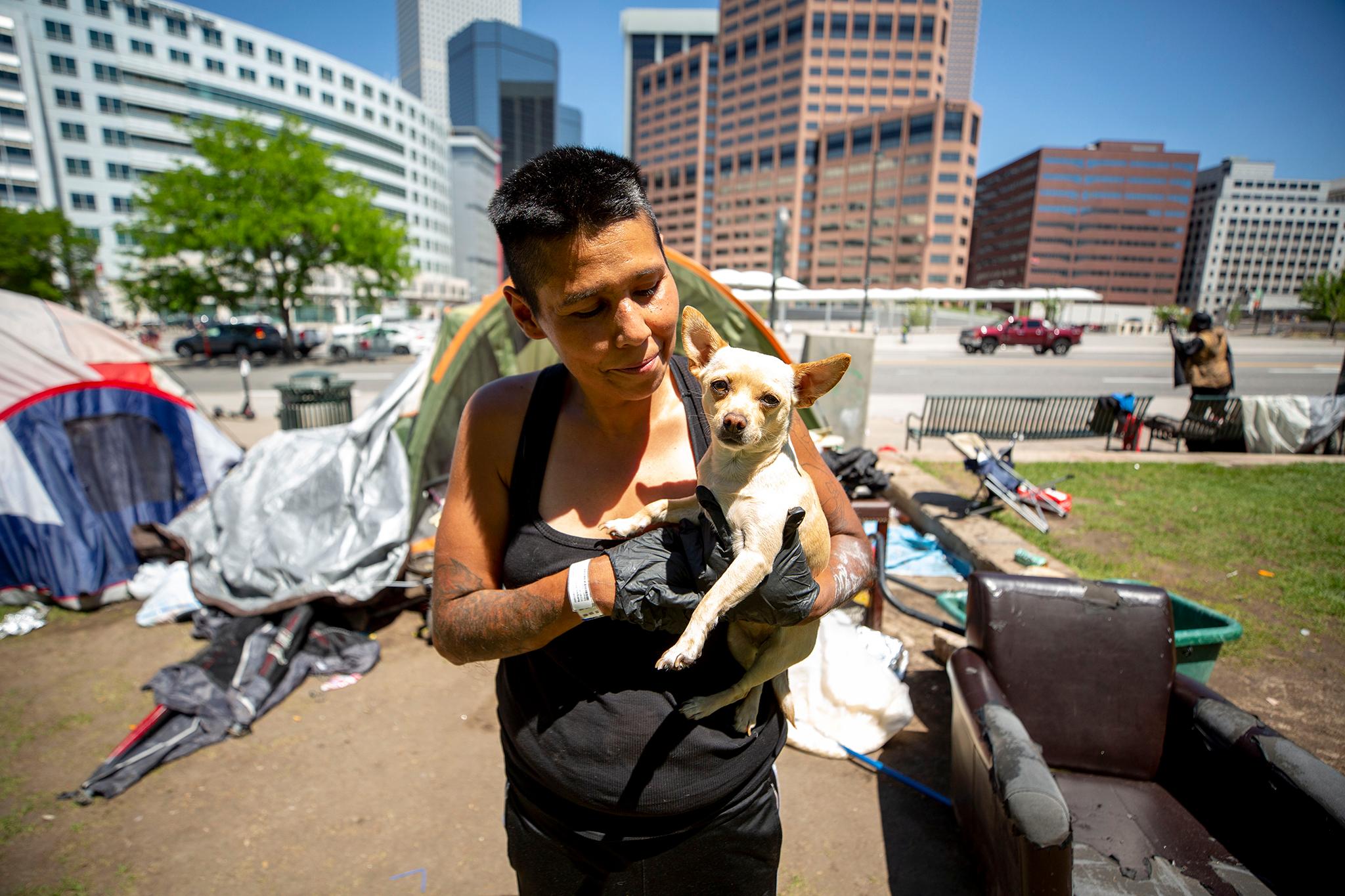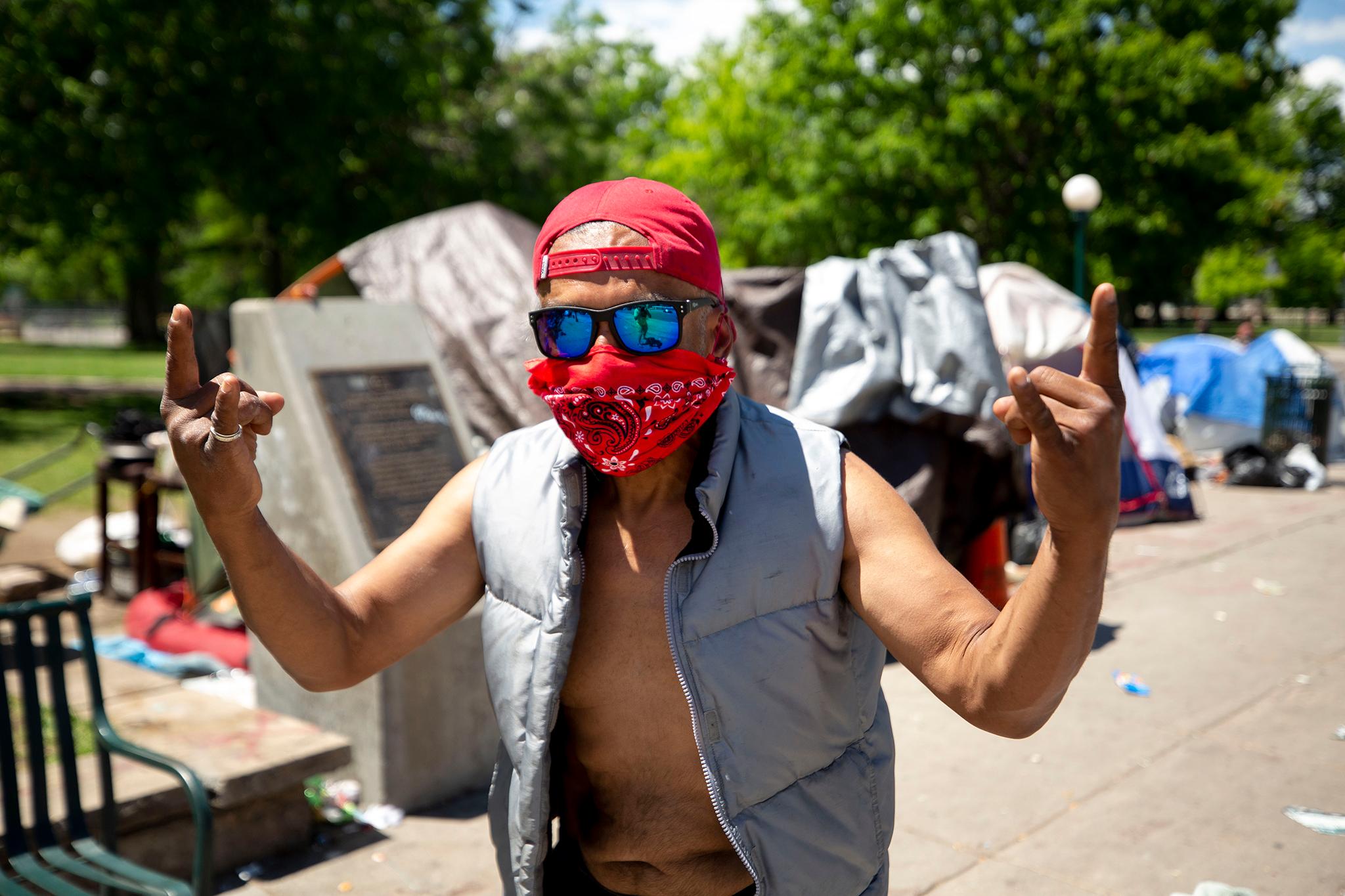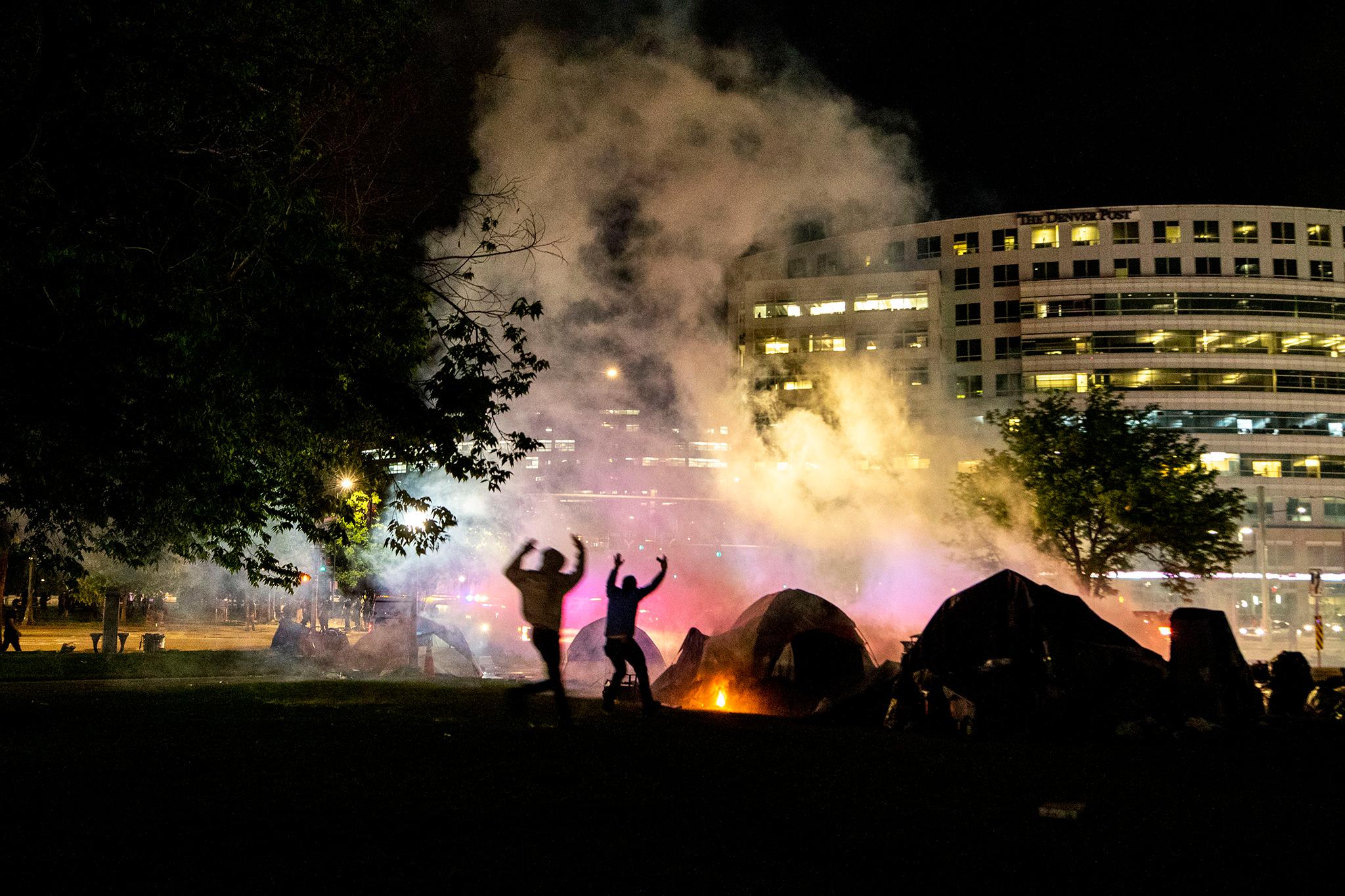Alina Rodriguez took herself to the hospital Thursday night after the camp where she's been living along Colfax Avenue became the site of chaotic confrontations between police and protesters reacting to the death of George Floyd. She said stomach problems led her to seek medical attention.
"I think it was because of the pepper spray," she said.
As police used explosive devices, pepperballs and tear gas to drive protesters from the intersection of Colfax and Broadway, Rodriguez and other unhoused residents fell into the crossfire. Around 11 p.m., an officer flung a tear gas canister that landed on the corner of a tent next to Rodriguez's. It began to burn, but protesters waving their hands above their heads rushed to the small fire and quickly stamped it out. A scared-looking dog rushed out of the tent.
Had Rodriguez stayed overnight, she likely wouldn't have gotten much sleep anyway. A man named Rook said the noise kept him up all night. Around 2 p.m. on Friday, he said he still hadn't slept. He said three flash-bang explosives went off very close to him all at once.
"It was like a video game," he said. His ears rang and his vision went white after they went off: "I was concussed."
Rodriguez and Rook both said they didn't blame police, though the tactics still affected them.
"They're just doing their job," Rodriguez said.

Rook was upset with protesters for bringing the fight to his front door. He's been on the streets for about a year and camping at Civic Center for a little over a week. He said police often make him move his tent.
"I actually thanked the cops because nobody got blown up and they left us alone," he said. "The cops did their work right."
On Friday, the ACLU of Colorado tweeted that the collateral damage is proof police were not restrained with their use of force.
"This is what we mean when we say excessive use of force is a danger to our communities, Mayor Hancock," it read. "We are not ok with this. You shouldn't be either."
Police Cheif Paul Pazen told the press Friday that his officers demonstrated extreme restraint in a dangerous situation. Hancock said it was "unfortunate" that people who were not protesting were injured. He said they could file a complaint with the Office of the Independent Monitor.
"No one targeted homeless tents or homeless individuals or even innocent individuals who were bystanders. The goal was to abate and deescalate the situation last night, and when that happens with that number of folks unfortunately you will have those who might be injured and might get in the crossfire," he said. "I saw reporters, while I was watching it live on television, become victims of pepper spray. They were not the intended target."

Denise Maes, ACLU of Colorado's public policy director, said the mayor's suggestion to file a complaint is a "ridiculous response." She said she was upset by reports that bystanders came into contact with the police's "Less Lethal Force."
"I'm bothered," she said. "There are a lot of incidents that don't look very good, and they're very, very troubling. Especially after listening to the mayor and police chief's press conference."
After Pazen and Hancock said they were satisfied with police action Thursday night, Maes said she was worried that officers would not change tactics for future confrontations.
Beyond the immediate protests, Maes said the fact that campers were affected by pepper spray and flash-bangs shows the city's general attitude toward residents living without housing.
"The mayor seems to be more than willing to sweep the individuals who are homeless," she said, adding that crossfire is "an indication that he's not really worried about their safety."













